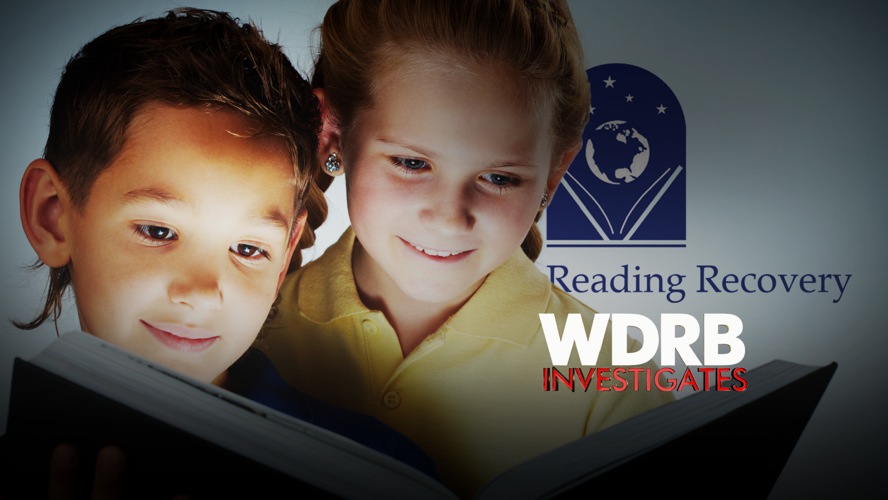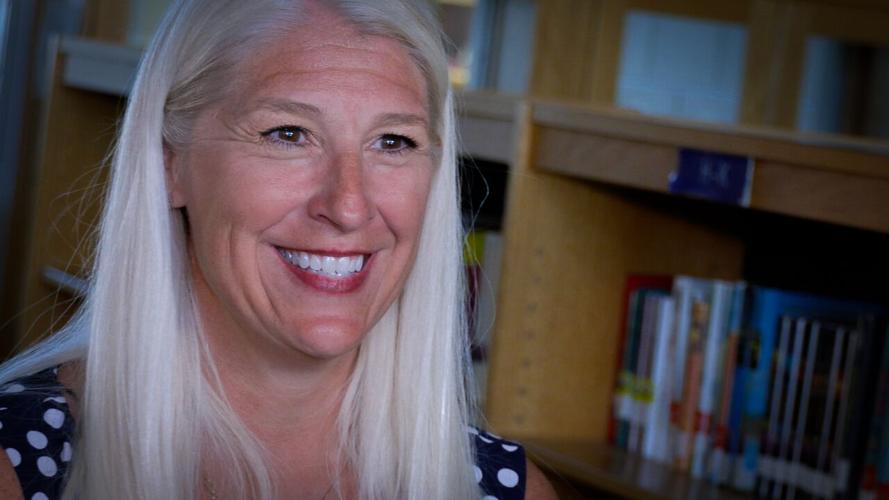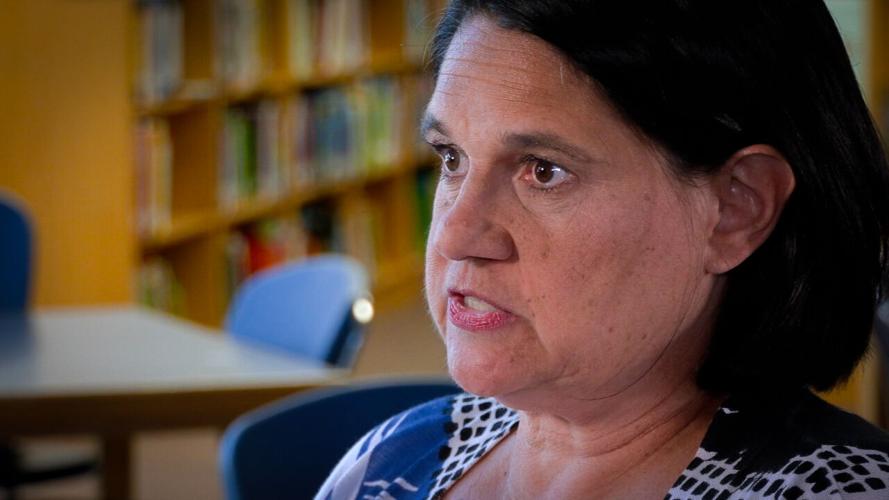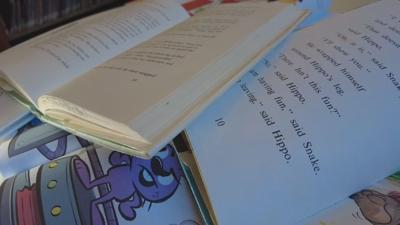LOUISVILLE, Ky. (WDRB) -- A literacy intervention program meant to help first-grade students learn how to read has drawn the attention of one Kentucky lawmaker who questions its effectiveness.
Schools across Kentucky have access to Reading Recovery, a national program offered through the state's Collaborative Center for Literacy Development developed for students in first grade who struggle with reading. School districts that provide Reading Recovery interventions give first-grade students one-on-one lessons in daily, half-hour sessions for up to 20 weeks.
The program's CCLD website boasts that 75% of students identified for reading interventions reach grade-level proficiency after completing the program.
But Rep. Tina Bojanowski, a Louisville Democrat and special education teacher at Jefferson County Public Schools, said testing data she has examined raises questions over whether the literacy program is worth the investment from state government and local school districts, which foot the bill for Reading Recovery teachers' salaries and benefits.

Rep. Tina Bojanowski (WDRB photo).
"If we're not doing everything that we can to ensure every child learns to read, then, I mean, it's a very strong word, but I think it's almost educational malpractice," Bojanowski said in a recent interview with WDRB News.
George Hruby, associate research professor at the University of Kentucky and CCLD's executive director, called Bojanowski's assertions about Reading Recovery's inadequacy "false."

CCLD executive director George Hruby (Courtesy: University of Kentucky).
"If you look at the data, there's a strong correlation between income and school achievement, and people in poverty tend to have a harder time scoring well on these standardized tests and doing well in school," Hruby said. "... We're one of the poorest states in the union, but by golly, we have beat the averages. We beat the odds and we've shown that poverty is not destiny."
Bojanowski pointed to lackluster scores in state standardized tests and diagnostic testing at JCPS for cohorts of students who participated in Reading Recovery as evidence that the program isn't working for some of Kentucky's youngest learners. Bojanowski said data she obtained in response to open records requests show many participants in Reading Recovery tested novice in Kentucky standardized tests by the time they reached third and fourth grade.
State testing for Kentucky students begins in the spring semester of the third grade, two years after Reading Recovery interventions end.
Data she provided show 195 of the 320 third-graders who participated in Reading Recovery tested novice in reading in 2018 assessments, and 895 of 1,294 Reading Recovery participants tested in the lowest reading category in 2019. For the 2,059 fourth-graders who participated in Reading Recovery in 2018 assessments, 1,314 tested novice, her data show.
For JCPS students who had participated in Reading Recovery, data provided by Bojanowski show of the 420 third-graders who completed the program, 217 tested novice in reading in 2018-19 assessments.
"I'm not saying that Reading Recovery measures the same thing as the K-PREP, but we're spending a lot of money on an intervention that should provide those foundational skills that in turn would lead to greater proficiency levels," Bojanowski said.
She believes Reading Recovery does not focus enough on how letters come together to form words, while Hruby said students need to know how to decode words and comprehend language.
"When they get to the fourth and fifth grade and they can't read a word, they skip it," Bojanowski said. "They do not know how to break a long word into syllables and then decode it."
Hruby, however, said the data shows reading scores actually improve for those participate in Reading Recovery interventions.
"We've had a long run here of 24, 25 years where things have been very successful," he said. "It shows that by third grade, a third of those kids have left novice altogether. And by the end of fourth grade, according to that chart, over half have left. So you clearly are seeing an improvement. If you get them past their decoding skill problems, they can start using their decoding to learn and catch up on language as well."
He also questioned the accuracy of the data referenced by Bojanowski in her critique of the Reading Recovery program.
"That chart is screwy because it claims that 1,614 students were served during the two years that they look at — 2018 and 2019 — but we served almost 5,900 students. So 75% of the students are missing on that data," Hruby said. "Why? Where is it? Can we assume that it's just missing at random? Some kids will move out of state with their parents. Some of them get transferred into private schools, but not 75%."
Micki Ray, chief academic officer at the Kentucky Department of Education, said both Bojanowski and Hruby are correct in their interpretations of the testing data tied to Reading Recovery. There is research showing that the program works for students in the first grade, but research also shows that Reading Recovery is not sustainable on its own as students progress in their learning, she said.
"It ultimately is up to the local school and district, because they're going to have to decide is that investment at grade one enough knowing that the research shows that those gains are not going to be maintained across the rest of the elementary grade band," Ray said. "... They're going to have to decide is that investment at grade one enough knowing that the research shows that those gains are not going to be maintained across the rest of the elementary grade band."
Thirty-nine out of 91 JCPS elementary schools offer Reading Recovery interventions, according to the district.
Carolyn Callahan, the district's chief of communications and community relations, said JCPS has seen reading progress in every first-grade student who participates in the Reading Recovery program.

Farmer Elementary School principal Shannon Conlon (WDRB photo).
"Is it a one-size-fits-all for everyone? No, but nothing is, because we know that all of our students learn differently," Callahan said. "So Reading Recovery is just another tool that we have, and we have seen success in those first-graders that go through the Reading Recovery program."
Shannon Conlon, principal of Farmer Elementary School, is among JCPS principals who have not opted for Reading Recovery intervention. Instead, she said her school focuses on structured literacy with a focus on phonemic awareness and phonics.
"What we do is systematic," Conlon said. "It is schoolwide. It's not pockets of teachers doing something such as structured literacy. It is the whole school, every teacher in every grade."
Bojanowski believes Reading Recovery deserves more scrutiny from Kentucky policymakers, especially considering the costs to state and local taxpayers.
"I think that warrants much deeper research than has been put together before and I will continue to advocate for that," she said.

Copyright 2022 WDRB Media. All Rights Reserved.




